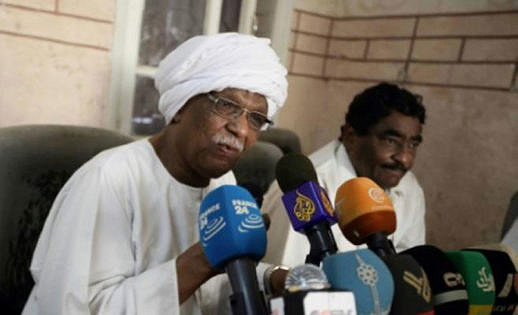
The leader of Sudan’s interim military council, Abdel Fattah Abdelrahman Burhan, promised to “uproot the regime” days after taking control in a military coup following last week’s fall of Islamist authoritarian president Omar al-Bashir.
In a live broadcast, the lieutenant-general vowed to restructure state institutions and end the night curfew, which has been met with a defiant response as protests continue, demanding the military hand control back to the people. In the first hours after the coup, the army suspended the constitution, dissolved the government, declared a three-month state of emergency, imposed a one-month curfew, and closed the country’s borders and airspace.
Lt. Gen. Burhan also announced the release of all political prisoners. However, opposition groups have demanded freedom for those who were rounded up and detained during the huge protests that have swept the country since December 2018.
He claimed the armed forces would maintain “peace, order, and security” across the country during a transitional process lasting at least two years until elections and civilian rule would be in place.
After taking over from the coup leader, Defense Minister Ahmed Awad Ibn Ouf, who stepped down on Friday, he promised to meet opposition leaders to discuss the transfer of power and asked them to “help us restore normal life.”
President Bashir finally stepped down after months of protest over his increasingly authoritarian rule, sparked by a tripling of bread prices when subsidies were removed.
Read “Sudan: A dictator on the ropes” by People’s World international affairs analyst Emile Schepers for more on Omar al-Bashir’s regime and the protest movement against it.
The protest movement has been led by the Sudanese Professionals Association—an umbrella group of trade unions, doctors and lawyers associations, and political parties, including the Sudanese Communist Party.
They have rejected military rule and called for the protests to continue as they press for power to be handed back to the people.

The Communist Party demanded the “immediate handover of power to the representatives of the people,” warning of a “classical palace coup” as the military seized control. Among the political prisoners released so far are SCP secretary Muhammad Mukhtar al-Khatieb and another member of the Central Committee, who were greeted at party headquarters following their release. Al-Khatieb had been detained following a protest over bread prices in January 2018.
“The people are chanting everywhere: The revolution continues until final victory,” a statement from the party said.
“Despite the success of the revolution in removing Bashir—who enjoyed the outside support of the troika, the EU, the U.S., Canada, and local reactionary governments such as Qatar, Egypt, and Turkey—and the release of all political prisoners, the temporary setback will be dealt with by the increased unity and the determination of the masses to roll back and defeat the present military transitional council,” party sources said.
The party warned that the military coup was a “carbon copy” of the events in Egypt in 2011 which led to the defeat of the revolutionary process and the installation of the Egyptian army in Cairo.
“Freedom, peace, justice. Revolution is the people’s choice,” SCP officials said, adding: “The Sudanese Communist Party and all the opposition forces are adamant in their resolve to continue the fight until the establishment of a civilian government that represents the masses and implements the democratic alternative program accepted by all the forces, including the Forces of National Consensus, the Sudan Call, the Professionals Alliance, and the armed groups.”
Morning Star










